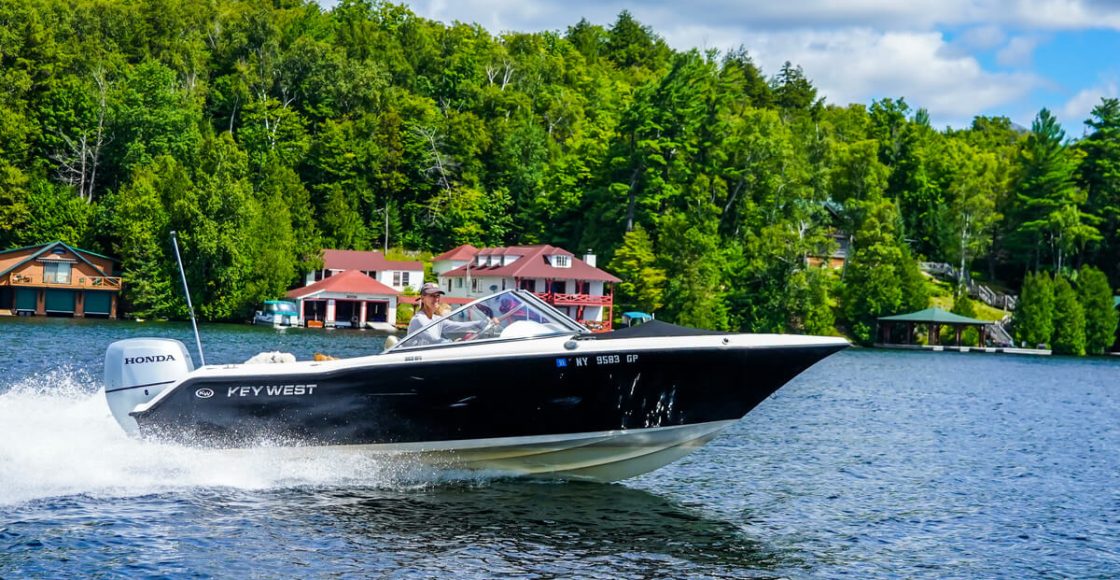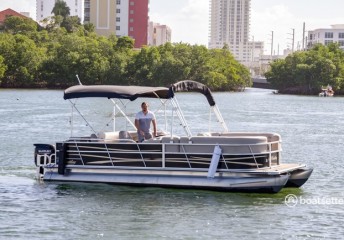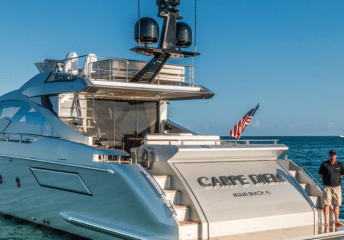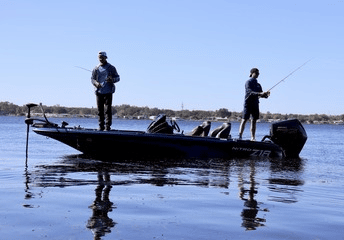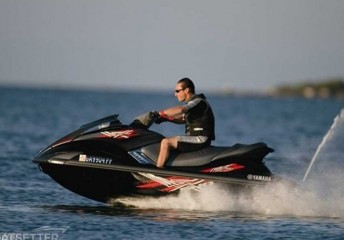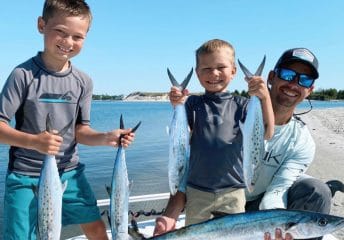First-Time Boat Owner Checklist
Last Updated on April 14, 2022 by Boatsetter Team
If you’re a first-time boat owner, then you have a lot to think about—first and foremost, where to cruise so that you can have the most fun aboard your new boat. The thing is, letting the good times roll is a lot easier to do if you have first made sure that everything is in order for guest safety and general use.
It’s a good idea to make a checklist of all the things you’ll need to get started out on the water. No two checklists for first-time boat owners will be exactly the same; if you’re planning to do a lot of fishing, you’re going to need to sort out different equipment than, say, a first-time boat owner who plans to spend sunny afternoons wakeboarding.
And, there are regulations that differ from place to place. No matter where you live and where you intend to use your boat, the new boater checklist you create should include checking with local, state, and federal regulatory agencies to ensure that you’re in total compliance.
Generally speaking, here are ten things you’ll want to cross off your to-do list as a first-time boat owner:
- Register your boat
- Purchase required boat safety equipment and gear
- Secure boat insurance
- Plan for annual maintenance and potential repairs
- Determine where you will store your boat
- Complete boater education and training
- Prepare and maintain your boat’s trailer
- Determine the right fuel for your boat
- Brainstorm fun things you want to do with your new boat
- Put your boat to work to offset your ownership costs
Own a Boat? Learn How to Offset the Cost of Ownership by Listing on Boatsetter
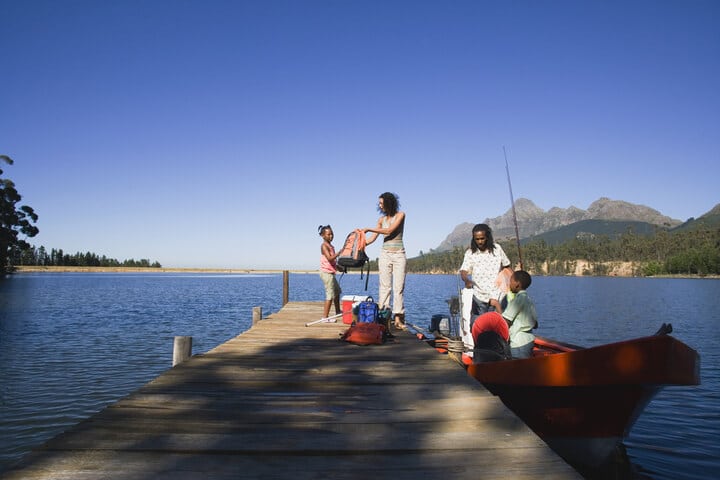
1. Boat Registration
The U.S. Coast Guard publishes this helpful guide on federal regulations that affect all boaters in the United States. Making sure that you are complying with federal regulations is a good place to start.
Next, move to the state level, where guides are usually online through state agencies. Some examples are Florida, California, and New York. If you can’t find information through your state’s website, then try Boat Ed, which has state-by-state information.
Last, check for regulations in your locality. If you’re boating on a lake, then check with the lake’s regulatory agency (or private ownership rules).
2. Boat Safety Equipment & Gear
This is another area where every new-boater checklist will vary, at least slightly. Start with this Boat Safety Equipment Checklist for guidance on equipment such as life jackets and emergency signaling devices and fire extinguishers. This checklist will also show you what items you’re required to have on your boat by law according to the U.S. Coast Guard.
Once you have the safety gear in hand, you can turn your attention to equipment for your favorite activities. This can be anything from water skis and tow toys for water-sports fun to coolers and portable Bluetooth speakers for raft-ups—be sure to check out these 10 Must-Have Boating Accessories.
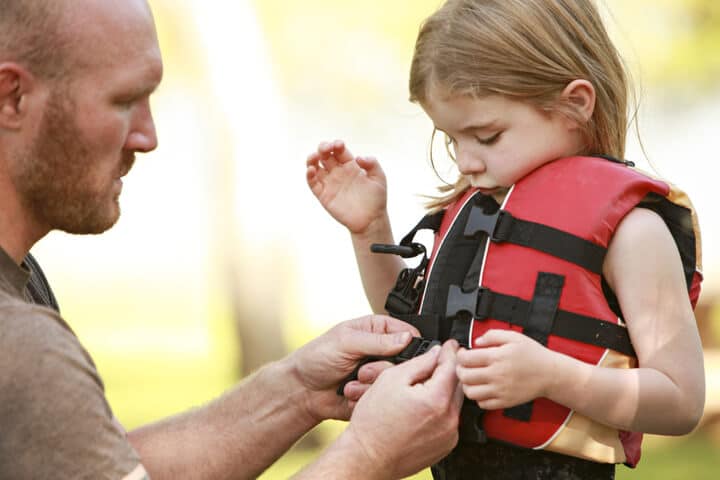
3. Boat Insurance
Again, this is an item that will vary from boat owner to boat owner. Numerous types of insurance policies cover smaller boats, larger boats, personal watercraft, boat club rentals, and more. Your type of boat, and the type of boating you plan to do, will affect your insurance policy needs. To get you started, be sure to read How Much Does Boat Insurance Cost?
Talk to a few brokers or companies that specialize in marine insurance. For smaller boats, check with your homeowners’ insurance expert to see if any coverage you already have will extend to the water.
4. Boat Maintenance & Repairs
Where will you go if your boat needs a repair? It sounds like a simple question, but as with so many other things in life, finding a good mechanic and then being able to get an appointment for service at the height of the season can fast become a gauntlet of frustration.
The smartest first-time boat owners ask around the docks for recommendations, and then get their names into a good service center’s system, well before anything on the boat actually breaks.
You’ll also want to map out a plan for annual and seasonal maintenance—including winterization and spring commissioning if that’s necessary where you live.
5. Boat Storage Options
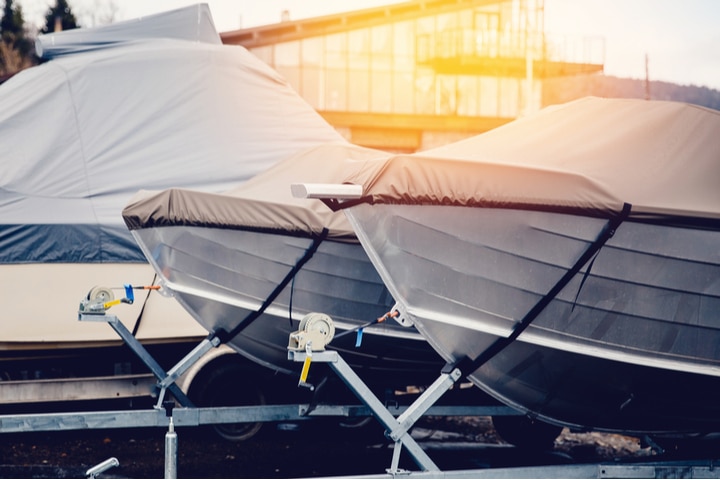
Maintenance and storage can go hand-in-hand because some marinas and storage facilities have repair and maintenance centers on-site. Sometimes, package deals are available so you don’t have to worry about where you’ll take your boat if you have a breakdown, or where you’ll store your boat at the end of the season.
If you require hurricane-protection storage, then sign up for a spot well before hurricane season begins. These spots tend to book up even faster than regular storage facilities do. Call at least six to eight weeks in advance to reserve a spot.
6. Boater Education and Training
While you’re on the Boat Ed website checking out state boating regulations, take a look at the state-by-state courses that are available for boater education. In some states, you may be required to get a boating license—don’t worry, it’s a simple process, check out How to Get a Boating License or Boater Safety Certificate.
For years, the U.S. Coast Guard has reported that boater inattention and inexperience are among the primary causes of on-water accidents that lead to injuries and deaths. Taking a boater education course—and getting comfortable at the helm—should be must-do items on any new-boater checklist.
7. Trailering Your Boat
If you’re a first-time boat owner who will be trailering your boat to and from the water, then it’s a great idea to add a trailering course to your new-boater checklist (or at the very least, read our 4 Tips for Trailering Your Boat guide).
America’s Boating Club offers a seminar that covers not just the trailers, but also the vehicles that tow them, maintenance for trailers, and the art of towing and launching.
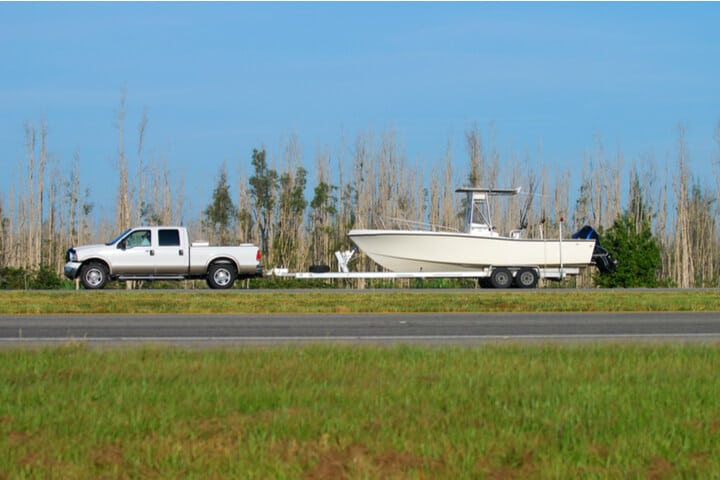
8. Fueling Your Boat
Every new-boater checklist should include locating multiple locations where you can get the right kind of fuel for your boat. Your boat dealer or manufacturer’s instruction book will tell you the type of fuel you need. Put that kind of fuel—and only that kind of fuel—into your boat. Also, be sure to refer to our guide on Boat Fuel Consumption: 5 Tips for Measurement, Efficiency, and Savings.
The watchword you need to learn about fuel as a first-time boat owner is “ethanol.” Ethanol is a renewable made from corn, and producers have been pushing for years to switch more of America’s gas supply so that it contains ethanol. The problem for boaters is that ethanol can eat through boat engines, and warning labels at the pump aren’t always clear about which fuel contains ethanol, and which fuel is ethanol-free.
Talk to your local gas stations on the road, or fuel dock operators at the marina, and make sure you know what you’re getting when you fill up the tank for the boat.
9. Things to Do with Your Boat
Now, we’re getting to the fun stuff. This part of the new-boater checklist is about your plans for having a great time out on the boat.
It’s a smart idea to make a checklist of different-length cruises you’d like to do, so you can start to plan the itineraries on a chart, figure out the ideal length of time for each destination, and begin to put some dates on the calendar. If you decide you want to do longer-distance cruising, you can purchase cruising guides and get to know the areas better.
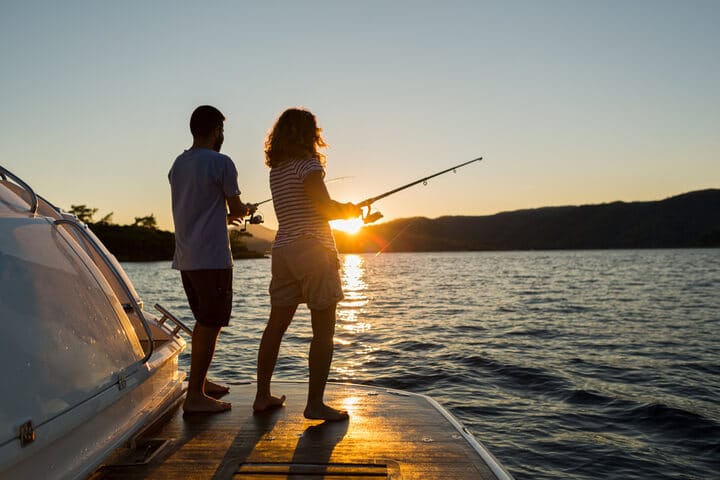
10. List Your Boat on Boatsetter to Offset Your Ownership Expenses
Last but certainly not least, a new-boater checklist should include a budget. If you’re thinking you’d like to make money with your boat, either by running a charter or offering your boat for others to rent when you’re not onboard yourself, then you can sign up with a platform like Boatsetter to advertise.
Some new-boat owners find that renting out their boats on a part-time basis covers all their cruising expenses for a season. Others end up offsetting some expenses, which allows them to do more boating themselves. Either way, thinking about when and how you might offer your boat for rent can be part of your plan from the start.
Earn an Average of $20,000 or More by Listing Your Boat for Rent on Boatsetter

Kim Kavin has been on boats in more than 50 countries and islands, including in the Caribbean, Mediterranean, South Pacific, Indian Ocean and Southeast Asia. She grew up learning to steer a ski boat and Hobie Holder at her grandfather’s lake house in New Jersey, and went on to spend time aboard everything from America’s Cup racing sailboats to submarines.
Kim is a PADI-certified scuba diver and animal lover who always enjoys a good, long look around a coral reef. Her award-winning writing and editing regularly appears in national marine magazines and on leading websites. In her early years, she was a Dow Jones editing intern and a graduate of the University of Missouri-Columbia School of Journalism. When she’s not writing, Kim can usually be found hiking northwest New Jersey’s beautiful park trails with her adopted shelter mutt, Ginger.
